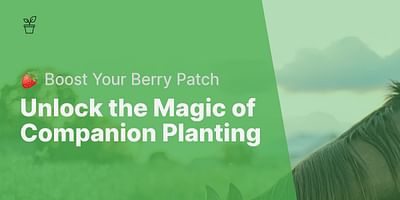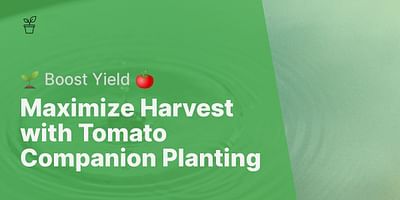Fiona Kessler is a seasoned horticulturalist and avid blogger, passionate about sharing her extensive knowledge of companion planting with her readers. Fiona firmly believes in the therapeutic and transformative power of gardening, viewing it as a unique way to cultivate a deeper connection with nature and enhance overall well-being.
Hey there! It's Sophie from Helper Plant, and I'm here to help you navigate the world of companion planting. One of the most common questions I get is about which vegetables should not be planted together. It's a great question because certain plants can actually hinder each other's growth or attract pests when planted side by side. So, let's dive in and explore some vegetable combinations that are best kept apart in your garden.
First up, we have tomatoes and potatoes. While they may seem like a perfect match, they actually belong to the same plant family, Solanaceae. Planting them together increases the risk of spreading diseases like blight. It's best to keep these two separate to ensure healthy growth.
Next, let's talk about onions and beans. Onions release a chemical that can inhibit the growth of beans, affecting their yield. So, it's best to give these two some space and plant them in different areas of your garden.
Another combination to avoid is planting cabbage and tomatoes together. Cabbage is susceptible to a pest called the cabbage worm, and tomatoes can attract these pests. By keeping them separate, you can reduce the risk of infestation and protect your cabbage crop.
Now, let's discuss carrots and dill. While dill is a great companion for many plants, it can actually stunt the growth of carrots when planted nearby. Carrots prefer to have their space, so it's best to plant them away from dill.
Moving on, we have cucumbers and sage. Sage is known to inhibit the growth of cucumbers, so it's best to keep these two apart. If you love both plants, consider planting them in different areas of your garden.
Lastly, let's talk about peas and onions. Peas and onions have different soil and water requirements, which can make it challenging to provide the ideal conditions for both. It's best to plant them separately to ensure they thrive.
Remember, these are just a few examples of vegetables that don't make the best companions. There are many other combinations to consider, so it's always a good idea to do some research before planning your vegetable garden. By understanding the needs and preferences of different plants, you can create a harmonious and productive garden.
If you're looking for more information on companion planting, be sure to check out our comprehensive companion planting guide on Helper Plant. We've got tips, charts, and everything you need to plan your vegetable garden like a pro.
Happy gardening!















